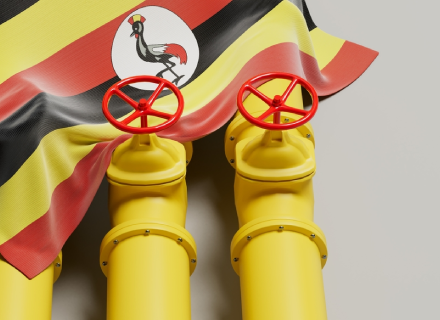Super gasoline will cost more in Uganda than in Kenya due to unexplainably high pipeline and logistical expenses, impeding Kampala’s plan to source cheaper oil by bypassing Kenya and purchasing the products directly.
Uganda is paying Vitol Bahrain USD 81.50 per tonne of super petrol, while Kenya agreed to pay USD 90 per tonne with three Gulf oil majors under a government-to-government (G-to-G) arrangement. This is based on a comparison of freight and insurance rates.
But Unoc has added more logistics costs, USD 36.92 per tonne, instead of Kenya’s USD 28.03 per tonne under the G-to-G agreement.
Furthermore, Unoc’s indicated pipeline rates are USD 57.38 per tonne, which is more than the Kenya Pipeline Company’s (KPC) charges of USD 5.93 per tonne. This begs the question of who is pocketing the money and why the pipeline prices are greater than what KPC is charging.
Uganda President Yoweri Museveni in 2023 attributed Kenya’s government-backed gasoline importation agreement’s “middlemen” to the high fuel cost in Kampala. After that, Uganda and Vitol Bahrain inked a five-year contract.
At present, the price of a litre of super petrol in Nairobi and Kampala is the same, underscoring the direct impact of Kenya’s G-to-G agreement on fuel prices in Uganda. In its examination of the pricing build-up, one of the neighbouring country’s oil marketing companies asked, “Why is Unoc’s price greater than Kenya’s government-to-government deal?”
According to the analysis, Uganda charges USD 990.29 per tonne for gasoline, USD 9.82 more than Kenya does for the same amount of fuel.
The initial diesel shipment that arrived at the Mombasa port with super gasoline has not yet had its price increased by Unoc.
Ruth Nankabirwa, Uganda’s Minister of Energy and Mineral Resources, has already issued a warning to the populace about the surprise that awaits them when the nation begins to determine pump prices by its import agreement with Vitol Bahrain.
The pipeline fees cover the cost of transporting fuel from KPC’s Mombasa facilities to the Eldoret depot, from which the cargoes of the Unoc are transported by truck to Kampala.
Uganda had claimed in 2023 that by cutting away the “middlemen” in Kenya’s G-to-G agreement, their agreement with Vitol Bahrain would guarantee reduced pump costs in Kampala. Kenya entered into agreements to deliver fuel on credit for 180 days per consignment with Saudi Aramco, Emirates National Oil Company (Enoc), and Abu Dhabi National Oil Company.

